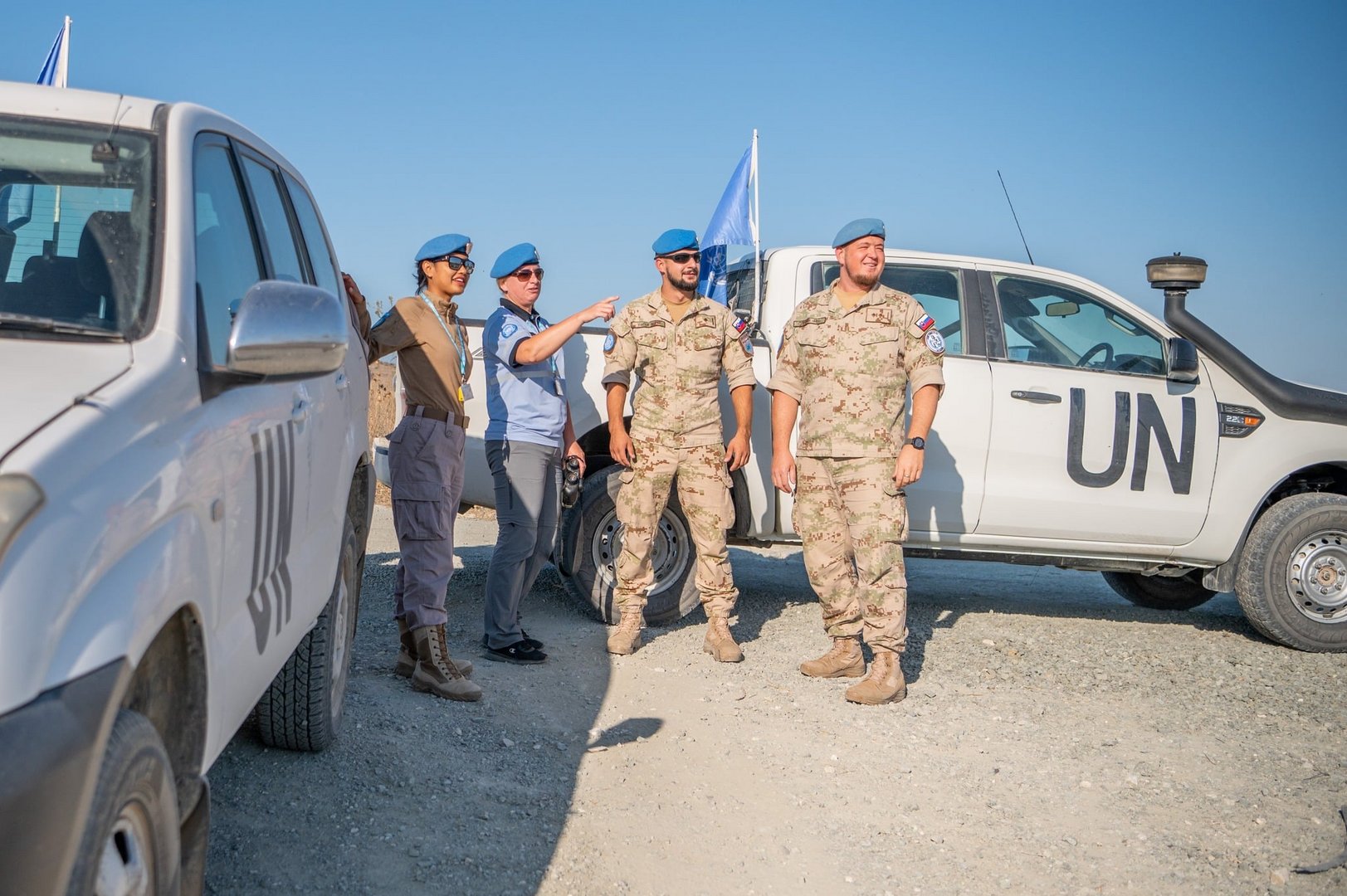An evaluation of the latest problems to have arisen in the buffer zone
The attack by Turkish Cypriots against members of Unficyp in the buffer zone last month highlights their efforts to challenge the functions of the UN force in Cyprus by a decision to construct a road between Arsos and Pyla, thus violating the very status quo of the buffer zone.
In their plans, this action constitutes an escalation aiming at achieving their said goal.
Back in July 2018, the then Turkish Cypriot leader Mustafa Akinci sent a letter to members of the UN Security Council asking for the reassessment of the Unficyp mandate. His arguments were that Unficyp continues to cooperate with the Turkish Cypriot authorities without a legal basis and that his community is ready to prepare a document with the UN dealing with all aspects of their relations.
The consent of the host state is the most important legal basis for the admission and operation of a UN force. In the case of Cyprus, this consent has been given by the Republic of Cyprus and the necessity of placing relations between the UN and the host state on a clear legal basis led to the conclusion of an agreement, on March 31, 1964 between the Republic of Cyprus and the UN concerning the status of Unficyp.
In this respect, the mandate of the force as enunciated by the Security Council in its resolution of March 4, 1964 was in the interest of preserving international peace and security, to use its best efforts to prevent a recurrence of fighting and to help maintain and restore law and order and return to normal conditions.
Early in the history of Unficyp, the need was felt for some clarifications regarding the role the force was to play. To that end, then-Secretary General U Thant circulated to the governments concerned an aide-memoire setting forth a number of principles to guide the conduct of the force. One of them provides that the force undertakes no functions which are not consistent with the provisions of the UNSC resolution of March 4, 1964.
Coming now to Akinci’s expressed readiness to prepare a document with the UN to deal with all aspects of their relations, one wonders whether the UN can ignore its own Resolution 541 (1983) of November 18, 1983, which deplores the Turkish Cypriot Unilateral Declaration of Independence and considers the said UDI as legally invalid and calls for its withdrawal.
The second attempt to challenge the functions of Unficyp was made by the Turkish Cypriot side through a statement by ‘foreign minister’ Tahsin Erturuloglu in the Turkish newspaper Hurriyet in October 2022, which could be characterised as an ultimatum.
He gave a month’s notice to Unficyp to agree to the conclusion of a separate agreement with the ‘TRNC’, seeking recognition of the illegal regime. He further stated that if the UN responded negatively to the “agreement for the regime of the forces”, submitted earlier by him and Turkish Cypriot leader Ersin Tatar to UNSG Antonio Guterres and UN deputy SG for Peace Operations Jean-Pierre Lacroix, they would take all necessary steps. As was expected, the second attempt was confronted by the same difficulties encountered by Akinci.
Words turned into deeds with the events in Pyla, where the Turkish Cypriots attacked members of Unficyp, thus escalating their efforts to challenge its authority in the buffer zone.
What they were not expecting was the strong reaction of the international community, and in particular that of the UN Security Council.
In a statement issued on August 21, Council President Linda Thomas-Greenfield noted the serious concern expressed by the launch of unauthorised construction by the Turkish Cypriot side in the UN buffer zone near Pyla and that this action runs contrary to Security Council resolutions and constitutes a violation of the status quo; the condemnation of the assaults against UN peacekeepers, underlining that these attacks may constitute crimes under international law; the call for the removal of all unauthorised construction and the prevention of unauthorised military or civilian activities within and along the ceasefire lines.
There are also two important political elements. The commitment of the Security Council to an enduring, comprehensive and just settlement based on the bicommunal, bizonal federation with political equality, as set out in relevant Security Council resolutions. The second is their call for the sides to reach an agreement regarding the proposal of the Secretary General to appoint a UN envoy who could support the parties to reach common ground with the goal of returning to formal negotiations. Along the same lines goes the reaction of Unficyp, here in Nicosia, warning in particular against unauthorised construction in the UN buffer zone.
Concluding, we observe that the reaction of the Security Council and the effective performance of Unficyp in this particular case, in accordance with its mandate, gives hope that the United Nations as the appropriate organ whose objectives and principles represent a genuine guarantee for peace and security in the world, will take firmer action with a view to finding a just, enduring and comprehensive settlement of the Cyprus problem.
Dr Andrestinos N Papadopoulos is a former ambassador of Cyprus







Click here to change your cookie preferences